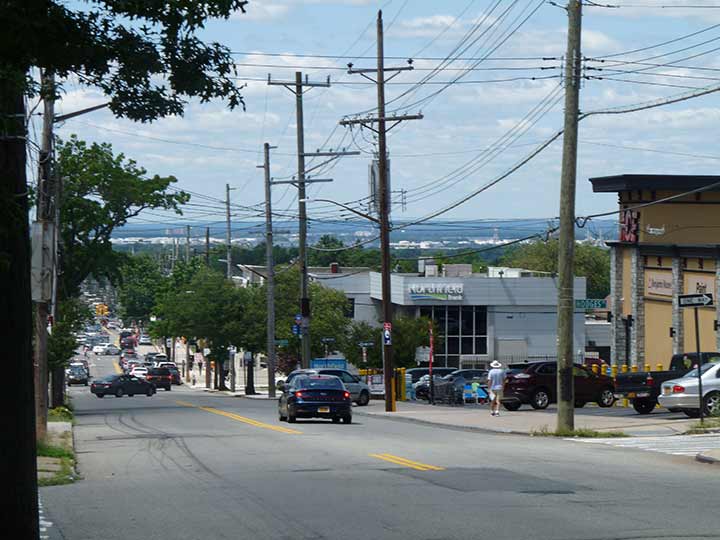
VICTORY Boulevard, one of Staten Island’s longest roads, has a history that goes back to a 19th Century US Vice President. The village of Tompkinsville, founded by a future Vice President, Daniel D. Tompkins (1774-1825) in 1815, while he was the Governor of New York State. He established a ferry service to Manhattan in 1817, from the foot of Victory Boulevard at the bay, and founded the Richmond Turnpike Company as an expedited means for wagons to travel to Philadelphia and elsewhere on the East Coast. Tompkins was elected Vice President on a ticket with James Monroe in 1816, and served two terms. He died here in Tompkinsville just 3 months after leaving office and is buried in St. Mark’s Churchyard on 2nd Avenue and East 10th Street in Manhattan; Tompkins Square Park also bears his name, as well as Tompkins Avenues in Staten Island and Bedford-Stuyvesant, Brooklyn.
Daniel Tompkins’ wife, Hannah Minthorne Tompkins, is also remembered by Tompkinsville’s street layout. Four of his children were named Hannah, Sarah Ann, Griffin and Minthorne. Originally, streets in Tompkinsville bore those four names; today, Van Duzer Street has replaced Sarah Ann Street, Bay Street has replaced Griffin, but Hannah and Minthorne Streets are still in place. Hyatt Street is likely named for Tompkins’ mother, Sarah Ann Hyatt Tompkins, while Minthorne was the name of Tompkins’ father-in-law, Magnet Minthorne. Daniel Van Duzer was a Tompkinsvile landowner in the 1830s, with Van Duzer Street running through what used to be his holdings.
Daniel Tompkins extended a turnpike west from the street named for his daughter Arietta in 1818 and for a century it was called simply Richmond Turnpike. After the USA’s successful WWI campaign, the turnpike was renamed Victory Boulevard, seen here at Hodges Place in Castleton Corners, in 1918.
As always, “comment…as you see fit.” I earn a small payment when you click on any ad on the site. Take a look at the new JOBS link in the red toolbar at the top of the page on the desktop version, as I also get a small payment when you view a job via that link.
10/30/24


14 comments
Did you mean 2018?
Those cars look pretty modern for 1918!
Probably meant to read more like this: “After the USA’s successful WWI campaign in 1918, the turnpike was renamed Victory Boulevard, seen here at Hodges Place in Castleton Corners.”
zzzzzzzz
Now I get it – a Split Infinitive! After the USA’s successful WWI campaign, the turnpike was renamed Victory Boulevard in 1918, seen here at Hodges Place in Castleton Corners.
I reject the notion that I have to construct perfect sentences. The reader knows what I’m talking about.
“R U OK?”
zzzzzz
The commas in the sentence should make it clear. However, there may be too much pettifoggery to see that clearly,
Daniel D. Tompkins, Columbia College class pf ’95…. 1795. No I never saw him around.
My family lived for many years on Victory Blvd, just up the hill behind the photographer. Castleton Corners is one of the nicest parts of Staten Island. Neat houses, a fair amount of apartments above the many stores along Victory, and a host of local and express buses to the ferry terminal or to Midtown Manhattan run along the boulevard. Some good restaurants as well. If I ever move back to Richmond County, that’s the area I’d head toward.
I always wondered why it was called Victory Boulevard in the first place.
I believe that Victory Blvd. was also known as N.Y. route 439 as it connected with N.J route 439 which runs to the Goethals Bridge..
The portion of Victory Blvd from Bay St to Forest Ave was indeed part of Route 439. Forest Ave west of Victory Blvd, which leads directly to the Goethals Bridge, constituted the remainer of Route 439. The Staten Island Expressway eclipsed these streets as the main east-west route through northern SI when it opened in 1964.
https://en.wikipedia.org/wiki/New_York_State_Route_439